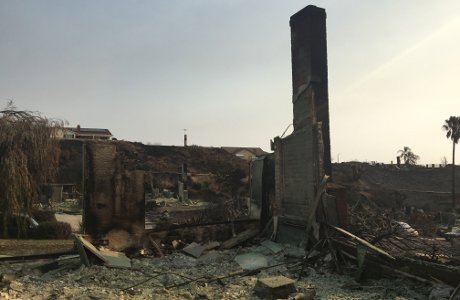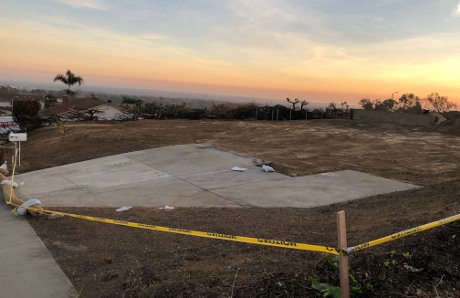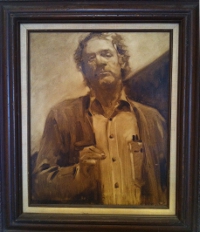- Home
-
About
 Fidelity & Excellence
Fidelity & ExcellenceThomas Aquinas College is unique among American colleges and universities, offering a faithfully Catholic education comprised entirely of the Great Books and classroom discussions.
-
A Liberating Education
 Truth Matters
Truth MattersTruth, and nothing less, sets men free; and because truth is both natural and supernatural, the College’s curriculum aims at both natural and divine wisdom.
-
A Catholic Life
 Under the Light of Faith
Under the Light of FaithThe intellectual tradition and moral teachings of the Catholic Church infuse the whole life of Thomas Aquinas College, illuminating the curriculum and the community alike.
-
Admission & Aid
 Is TAC Right for You?
Is TAC Right for You?Do you enjoy grappling with complex questions? Are you willing to engage in discussions about difficult concepts, with the truth as your ultimate goal?
-
Students & Parents
 Mind, Body & Spirit
Mind, Body & SpiritThere is always something to do at TAC — something worthwhile, something fulfilling, and something geared toward ever-greater spiritual and intellectual growth.
-
Alumni & Careers
 What Can You Do with a Liberal Education?
What Can You Do with a Liberal Education?Nothing speaks more to the versatility of the College’s academic program than the good that our alumni are doing throughout the Church and the world.
- Search
- Giving
Remembering the Thomas Fire: “We Can’t go Back to Where We Once Were”
Note: On Friday, Los Padres National Forest officials declared the Thomas Fire extinguished, with no hotspots detected in the last two months. In honor of this good news, over the next several days the College will publish reflective stories about the fire, all of which appeared in the Thomas Fire Commemorative Edition of the Thomas Aquinas College Newsletter (receive a free subscription.)
Alumni Family Adjusts to Life Anew
After Losing Home in Thomas Fire
Nearly two months after Jessica (Kelsey) and Nathan Haggard (both ’99) lost their home of six years to the Thomas Fire, they are trying to remember how — in those traumatic first days — they broke the news to their eight children. Their eldest, 16-year-old Jack, recalls a conversation that took place in the kitchen of his grandmother’s house in the San Fernando Valley, where his family had evacuated during the fire.
“I asked Mom what’s for breakfast. She said our house burned down.”
Mr. Haggard, a systems engineer at Apple, laughs. “We didn’t exactly have a staged roll out of the news.” Adds Mrs. Haggard, “At least they found out quickly, instead of wondering why Mom was crying all day!”
It wasn’t the announcement they would have planned, but then, nothing about December 4, 2017, or the days, weeks, and months that have followed it, has gone according to the Haggards’ plans — or even complied with what once seemed like reasonable expectations.
A lifelong resident of Southern California, Mr. Haggard was fairly certain, based on past experience, that although wildfires can move quickly, they typically keep to the open wilderness — and seldom spread uncontrollably into the heart of densely populated subdivisions. Then came the Thomas Fire, which, in a matter of hours, migrated from the edge of the Thomas Aquinas College campus, just outside of Santa Paula, into the Haggards’ hillside neighborhood in East Ventura, some 10 miles away.
“You picked a good night!”
It was Mr. Haggard’s youngest brother, Martin (’18), a senior at the College, who first alerted the family to the news. “Martin called to tell us there was a fire around the campus, and wanted to know if he and five of his friends could come stay with us while they were evacuated,” says Mrs. Haggard, a full-time, stay-at-home mom. “We said, ‘Sure, that’s fine,’ never imagining the fire would reach us. We were watching Monday Night Football, and we had just finished dinner, when they arrived with snacks. It was a close game, and I said, ‘You picked a good night to come!’”
When the Haggards learned via social media, about an hour later, that the fire had already traveled half the distance to their home, they began to consider their own evacuation. When the lights went out, they sent Martin and his friends to Mr. Haggard’s mother’s house in Chatsworth. And when firefighters arrived with loudspeakers at the foot of their neighborhood, urging residents to flee, they departed, too.
After a restless night, they woke the next morning to a news report that described their neighborhood as “on fire” and their cul-de-sac as “destroyed.” Nearby friends visited their property and confirmed their worst fears. “At least there was comfort in knowing right away,” says Mrs. Haggard. “Some of our neighbors were left wondering for days.”
“It was the strangest thing in the world.”
Save for a few items that somehow survived the blaze, the Haggards’ household possessions were all lost. That included family heirlooms and priceless objects of sentimental value, such as paintings by Mrs. Haggard’s father, who had died three years earlier; their wedding album; baptismal gowns.
Compared to those who lost much more, the Haggards are faring well: No one in their family was physically harmed, they are well-insured, and — thanks to a friend’s help — they were able to find a long-term rental home close to their children’s schools. Bulldozers have cleared the remains of their home, and they expect that, within two years, they will live in a new house, built to their specifications, on the very same site.
They also have been buoyed by the support, assistance, and love of friends, many of them fellow alumni, in the wake of the disaster. “I put it on social media that morning that our house was gone, and within hours people just started coming,” says Mrs. Haggard. “They would drop bags off on our front stoop. Within a couple of days the kids had tons of clothes, tons of shoes. They were all set! Others dropped off toiletries and food. They were anticipating our every need.”
When word got out that some of the Haggard children thought Christmas would be canceled, friends sprang into action once more, urging the couple to post a wish list on Amazon. “It was the strangest thing in the world,” says Mr. Haggard. “We would put items on the list, and a few moments later, the list would be empty again, because people would buy them so quickly. And everyone kept telling us, ‘You’ve got to put more items on your list!’ It was overwhelming. We felt lifted up by the food, and money, and toys, and clothes, and all the things you would need.”
Ironically, in the weeks before the fire, Mr. and Mrs. Haggard had warned their children to expect a smaller pile of presents under the tree that year. “We gave them this pep talk, and we said, ‘OK, this Christmas is going to be a lot less about material goods. Let’s focus on doing things for each other and being more thoughtful,’” says Mrs. Haggard. “And now, suddenly, there’s a little change, because they’re going to be getting tons of stuff. So — let’s focus instead on being super-thankful! I felt like God was shaking everything up for us. We say, ‘Let’s teach them this lesson!’ And He says, ‘No, you’re going to teach them this lesson instead.’”
“We are now shaped by this.”
“God is forcibly molding us into something that He wants us to be, so the trick is to let him do it,” says Mr. Haggard. “We’ve learned that when you have sorrows and suffering, the point is not to get over them or remove them, because they are now part of who we are; part of whom God is saving now includes that.” Observes Mrs. Haggard, “We have to embrace that we are now these people. We can’t go back to where we once were. This is knowledge that God wants us to have; we are now shaped by this.”
Five or six years ago, Mr. Haggard photographed the sketch and, providentially, he came across the digital image shortly after the fire. A friend who is a graphic designer printed it on canvas, creating an almost-identical reproduction that Mr. Haggard and the children presented to a surprised Mrs. Haggard on their anniversary, January 6. “I thought it was the original when I first opened it,” says Mrs. Haggard, then adding, with a smile, “but when you look at it, you can see it’s a little bit cleaner.”
For the Haggards, in that small difference lies a world of meaning. “Although we wish we’d never lost the painting, it now has even more significance than it did before,” says Mr. Haggard. “To have it represent Jess’s father, and his art, and the fire, and our friends all helping us rebuild our life, all in one picture — that’s pretty cool.”
Moreover, the painting symbolizes a painful but valuable lesson brought by way of tragedy. “When you’re married and you have a family, you’re sometimes tempted to think that your life is just laid out for you, that you’re just going to do the next 10, 20, 30 years by rote,” says Mr. Haggard. “Then, when something like this happens, you remember that the future really is uncertain. And that forces you to say, maybe we’ll just pay attention to today, because that’s all we have.”




